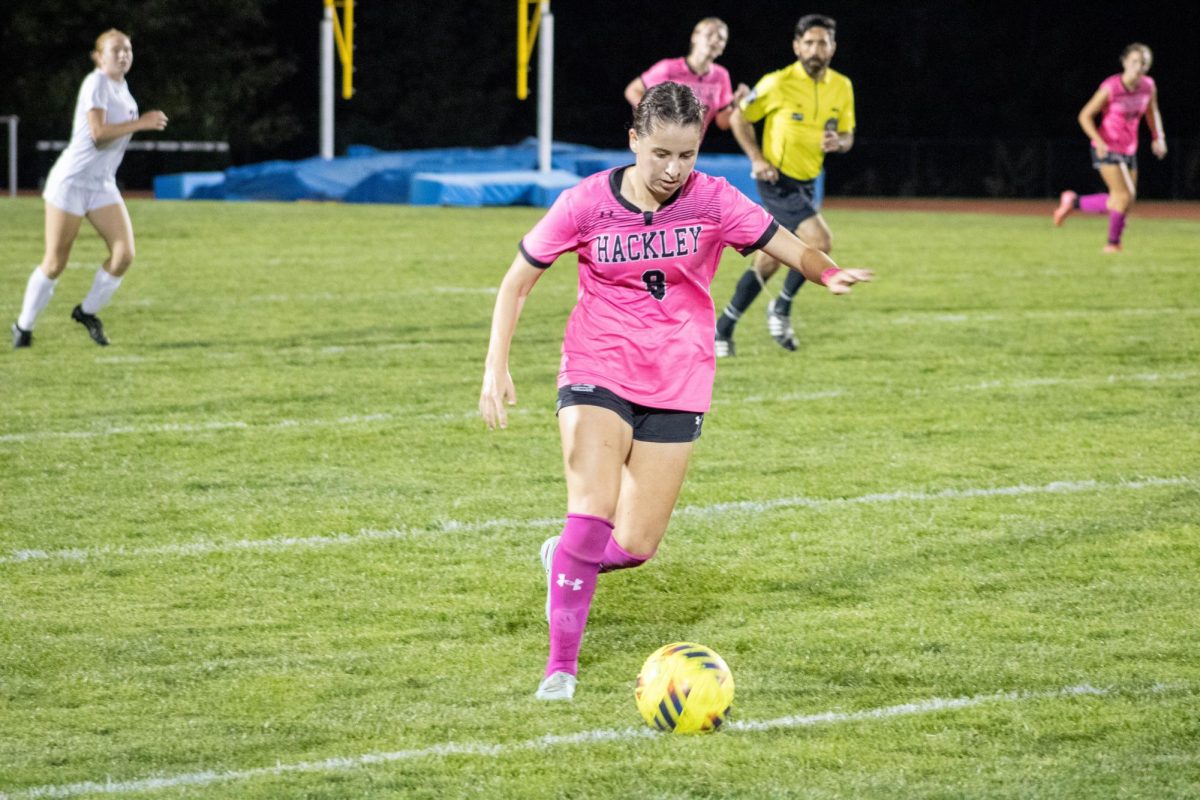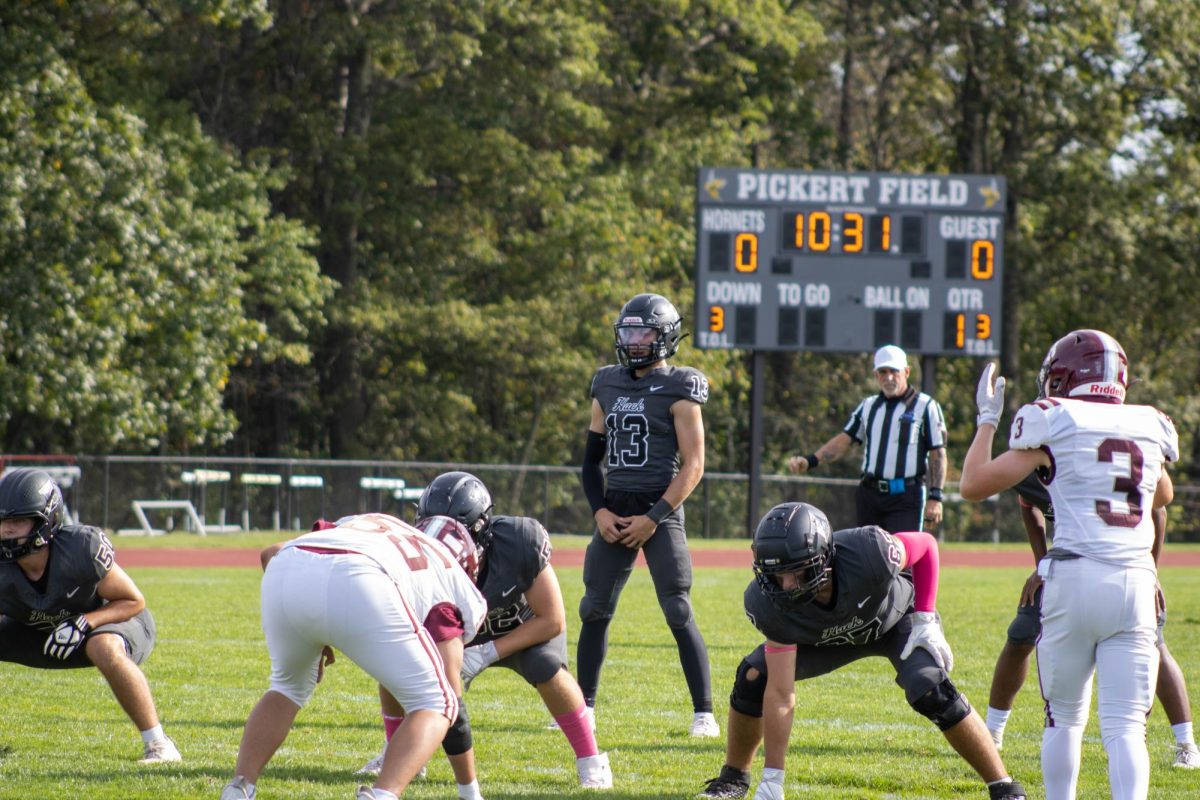Traits of the Youngest
Have you ever heard of “youngest children syndrome?” Whether it’s from stealing the spotlight or gliding through life’s early hurdles, youngest siblings often get tagged with this reputation. While they’re sometimes seen as socially bold and spoiled, there’s much more behind their roles in family dynamics. They become experts at navigating social settings and can be the glue that holds families together, even when tensions rise. The youngest add unique yet underestimated qualities to the mix.
For seniors Jackson Fauber and Frances Clifford, both youngest siblings, many of these stereotypical traits feel familiar.
Jackson recognizes that he is “more social and confident” than his older sister, but occasionally “less self-sufficient,” reflecting the classic trait of youngest siblings to be more outgoing but rely on others more for support.
Frances takes a different perspective on self-sufficiency. Although she agrees that she is viewed as more spoiled than her siblings, she sees herself as more self-sufficient. “Being home alone made me rely on myself more than my parents,” she said, noting that she had to be more independent at home while her sisters attended boarding school. Her views highlight that while youngest siblings may seem coddled, they eventually develop a sense of independence when circumstances require it.
Roles in the Family
The youngest siblings’ role in the family is often undermined compared to their older siblings. Jackson describes his family role as more relaxed, while his older sister forged her own path. His easygoing attitude of “going with the flow” sharply contrasts with the older siblings, who tend to feel responsible for maintaining high standards or setting the family tone.
Parents tend to be a little harder on the older siblings, which suggests a gradual decline in discipline in their following children.
Frances describes her role in the family as a “peacemaker,” using her position to maintain harmony among her sisters. “My sisters argue, and sometimes there are issues, but I try to make things more chill when my sisters get heated,” she said, demonstrating the youngest sibling’s ability to navigate family dynamics and develop strong social skills.
Pros and Cons
The benefits of being the youngest are evident. Jackson acknowledges that his older sister’s experiences gave him an “understanding of the process,” especially in milestones like the college process.
Frances appreciates the close bond she shares with her older sisters; she emphasizes they are the people she talks to most frequently. For her, there’s “no worst part” to being the youngest.
However, for Jackson, along with the positives, he thinks there are some downsides to him and his sister’s birth order. He recognizes the expectations set by his sister’s achievements in academics and athletics act as a challenge.
This pressure to keep up with an older sibling’s accomplishments can sometimes feel like a blessing and a curse, pushing the youngest to rise to the occasion.
This mirrors a common frustration for younger siblings, who can feel overshadowed by their older siblings’ accomplishments, and thus, strive to be like them. A researcher, Susan M McHale, who studied relationships between siblings and the influence siblings have on each other notes said, “Siblings’ extensive contact and companionship during childhood and adolescence—increasingly outside the direct supervision of parents or other adults—provides ample opportunity for them to shape one another’s behavior and socioemotional development and adjustment.”
In the Oldest Siblings’ Eyes
From the perspective of the oldest siblings, there are definite challenges that come with being the first to pave the way.
Sophomore Ella Ferrari said, “the oldest siblings have to work for everything,” while younger siblings benefit from their work. For instance, she had to earn the privilege of a phone, but her younger brother just received one without the same effort. This inequality can be taken as responsibility for the older siblings, who are already held to higher standards.
Senior Dylan Firooznia describes himself as a role model for his younger brother, who looks up to him in areas like sports and school efforts. However, on top of this loving dynamic, he feels an added pressure to set a positive example.
Both older siblings said that while they take on more household and behavioral responsibilities, they enjoy greater freedom. Ella balances her chores with the benefit of having more freedom to see her friends; this trade-off is a common experience for the older siblings who frequently manage more activities.
Varying Roles
The experiences of both the youngest and oldest siblings illustrate the unique challenges and benefits of each role in the family. While the youngest siblings enjoy relaxed rules and guidance from older siblings, they also face the pressure of living up to pre-set standards. Older siblings, who act as trailblazers, bear greater responsibility and have to work harder to achieve privileges.
Ultimately, these birth order dynamics shape not only individual personalities but also family relationships, defined by mutual support and guidance.
Whether you’ve experienced “youngest children syndrome” or not, every sibling’s role plays an essential part in a family’s story.














